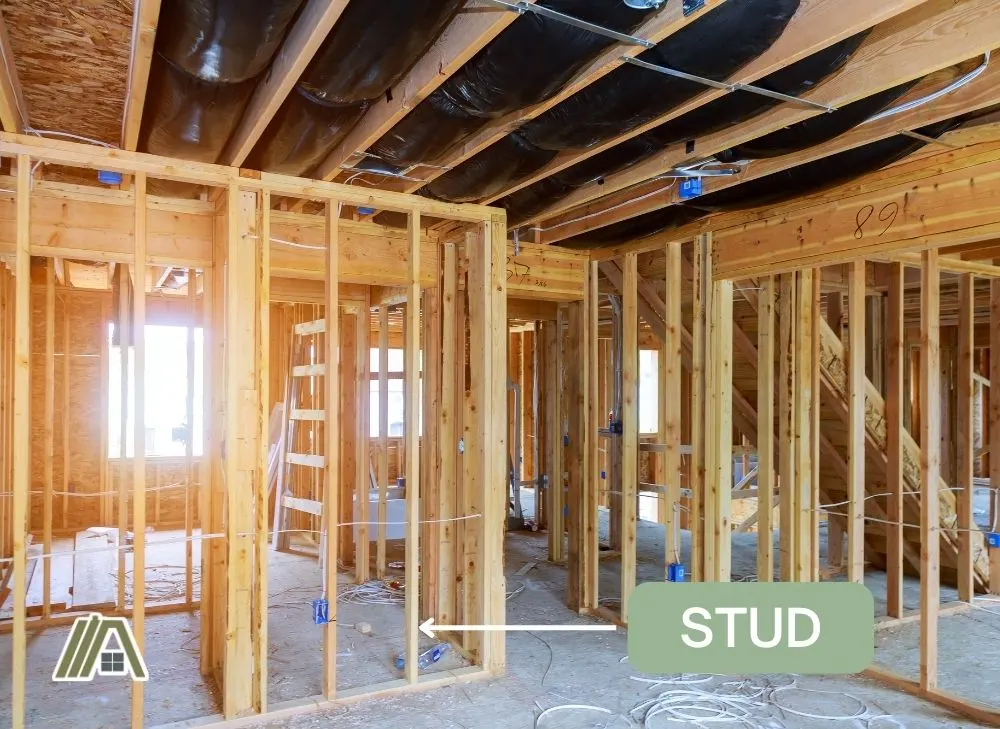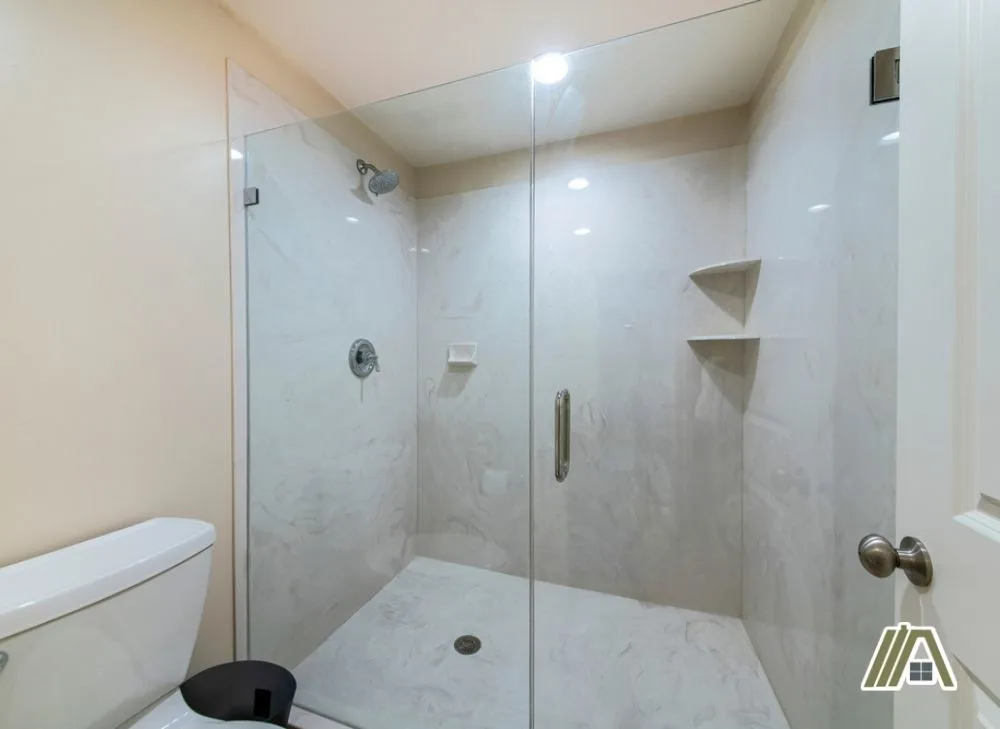Typically, doors should be secured to studs; it’s just a safer and more long-lasting design. But when framing is being designed and built, studs are automatically arranged around doorways. For shower doors, you may or may not have a conveniently located stud.
If you are still in the drawing phase of your design, the answer to this question might be a matter of shifting a few pencil marks or just beginning your build. If your bathroom is already built, then there might be a small amount of panic in the tone of the question. So, let’s put you out of your misery right away.

Studs are not always needed for shower door installation. Typically, the manufacturer will have the final say on their necessity. Most manufacturers give the option of stud installation or non-stud installation using hollow wall anchors for added support.
Studs Are Not Always Required
While there are definite benefits to securing your shower door to a wall stud, you may be relieved to hear that this is not necessarily a necessity.
Some doors will specify that they need to be secured to a stud, but there are many that do not have this installation requirement.
When Should I Secure the Shower Door to a Stud?
Wall studs are used as an extra point of support for a shower door as the door will be installed with fasteners directly onto the studs and not just into the drywall.
There are circumstances when this extra security is more important but still optional and circumstances when it is necessary.
If There Is a Stud, Use It
If there are already studs in the space, then use them. Even if you have to adjust your shower design by an inch or two, it’s most likely worth it.

This is particularly important when the shower door is large and/or made from heavier materials because these are more likely to rip out of drywall.
Shower doors made from lighter materials, such as screen panels, or smaller doors are less likely to have this issue, so if you don’t want to make use of the studs here, then that is a perfectly acceptable choice.
What Do the Installation Instructions Say?
A good rule of thumb to follow when you are unsure about something is to simply look at the instructions.
Often we disregard the manuals that come with our purchases as we believe we will be able to do the installation without much assistance from the guide.
However, the instruction manual will provide other useful information, such as whether or not the shower door will have to be fastened to a wooden stud. Even the building codes will defer to manufacturer guidelines for installation and operation.
The instructions will clearly state whether or not a stud is necessary. If it is, such as is the case with the Basco Deluxe Framed Sliding Shower Door (amazon link), then you need to make sure to comply.
Sometimes, manufacturers state that studs are necessary when they aren’t really. This might just be a simple matter of precaution as the company won’t want to be liable in case something were to happen as a result of the shower door falling off.
Alternatively, the manufacturers may have tested the product and found it to be significantly more at risk of falling off without being anchored to the stud and, thus, have advised customers that this should be the correct course to take.
Not following manufacturer advice could result in a safety risk, but it will definitely have a negative effect on your warranty.
How Big/Heavy Is the Door?
Studs are necessary to provide support for shower doors that may be too heavy to be simply fastened to the drywall.
The heavier the door is, the more it would be in your best interest to secure it to the wall studs even if it’s not mandatory, as set out according to the installation instructions.
Usually, glass shower doors, particularly frameless models, would benefit from being fastened to wall studs as they tend to be very heavy.

The more weight that the drywall needs to hold, the more at risk it is of giving in to the load. The door will fall, sometimes taking a good portion of the wall with it.
That is why the studs are necessary for that extra stability they provide.
What’s Behind the Drywall?
Sometimes, you will get lucky and there will be some kind of wooden board behind the drywall that will make the door more secure, even without stud anchorage.
You can even screw a block of wood between two studs where the door hinges will go. Then the door can be anchored in these blocks. They won’t be as secure as the studs, but they will be a lot better.
Of course, this would mean pulling down the drywall if it is already installed, which is not very convenient.
However, if there is nothing behind the drywall, just a hollow space, then I would recommend securing it to the stud. But, as established, unless the manufacturer claims it is necessary, this would be up to you.
Manufacturer Should Say if Stud Not Required
When in doubt, you can always contact the manufacturers of your shower door or consult the manual or company website to enquire whether or not a stud will be required for installation.
Wall Anchors Required Without Studs
You may find that the manufacturer of your particular shower door does not only specify the use of wall studs.
They may give you an option to make use of hollow wall anchors as an alternative to fastening the door to wall studs.
Wall anchors are a kind of screw that is comprised of an additional component that allows it to securely attach to the inside of drywall for more stability.
These can be an affordable alternative to installing wooden studs into your walls (if you do not already have them available by the shower door) or moving the shower to be near studs.
These tiny screws may look deceiving, but they are a worthy solution to consider and are suggested for use more often than you may think. They also allow you to DIY the whole process!
Framed Vs. Frameless
Framed shower doors tend to be lighter than frameless glass shower doors, and so you may find rare instances of manufacturers saying that studs may not be required.
Frameless shower doors are made of thicker tempered glass, so their heavier weight will require additional stability and structure to be able to support them.
Framed glass doors can be around 50 lbs (23 kg), and frameless shower glass doors tend to be almost 20 lbs heavier!

